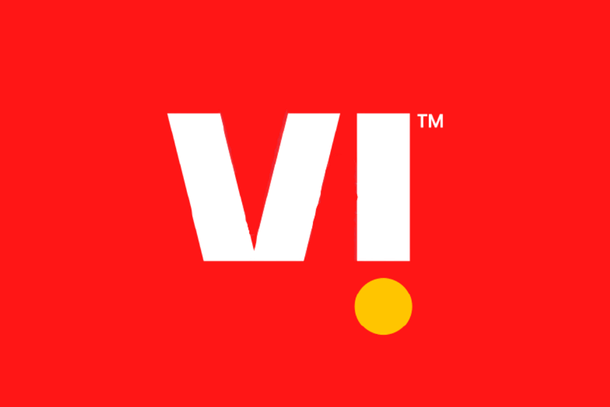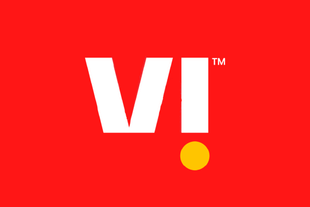Business
If Government Wants To Exit Vodafone Idea In Future, It Needs A Clearer Strategy. Here's What It Must Do
R Jagannathan
Jan 12, 2022, 12:20 PM | Updated 12:20 PM IST
Save & read from anywhere!
Bookmark stories for easy access on any device or the Swarajya app.


The Vodafone Idea (Vi) board’s decision to convert its outstanding interest dues to the government into equity ensures two things: there is now no real danger of the company going under in the foreseeable future, and lenders to Vodafone will now be provided a degree of comfort so that they can continue lending more for strengthening the company’s telecom network, bid for 5G spectrum and retain market share.
However, this does not guarantee that Vodafone will emerge stronger from this decision. For several reasons.
One, while the company’s debt will come down with the conversion of Rs 16,000 crore of dues into government-owned equity, after the conversion the government will become its biggest shareholder with 35.8 per cent of shares. The two existing promoters, Vodafone UK and the Aditya Birla Group will see their stakes coming down to 28.5 per cent and 17.8 per cent respectively.
Since the government has said that it is not going to convert Vodafone Idea into a government-run company or involve itself in any operational decisions, it leaves the question of what the existing promoters will do. Will they too quit over time or hand over their stakes — separately or together — to a new investor, or remain on board till the company’s working improves? The fact that neither wants to invest additional equity in the company should be worrisome, since new investors won’t know whether they will stay or go.
Two, even assuming the government does not meddle in the affairs of the company, its very presence will deter potential new investors, unless it makes its policy on exit clear right now. Remember, Air India could not be sold in 2018 not only because it had too much debt on its books, but because the government proposed to retain a significant stake in it post divestment.
Any government stake will mean whoever is running the company will have to keep looking over his or her shoulders to see what the government wants. With two weakened promoters, and one large government presence in the background, it would be a brave CEO who will not take a call from the Communications Ministry, even assuming officials and junior ministers have been given a strict hands-off order from the top.
Three, large investments will have to be made in the coming four years, since the company will have to invest in strengthening the network, bid for 5G spectrum, and retain customers who have been deserting the company in droves due to uncertainties regarding its survival.
From more than 400 million subscribers, Vodafone Idea is now down to 269 million (as at the end of October), according to the Telecom Regulatory Authority of India (TRAI). It could be even worse now. There is no way they can be won back unless the company offers them lower tariffs, or attractive options, or far superior services — all of which will depress earnings in the medium term. That requires a large amount of fresh capital in a haemorrhaging company. Who will provide the growth capital? Or will Vodafone Idea slowly become a government company as it slides further and is given more options to convert debt into equity?
Four, how will the government safeguard its investment of Rs 16,000 crore without agreeing to let the company invest more and dilute its own stake?
The government clearly has bought time for Vodafone Idea, but it has to be more proactive than this to ensure that the third private player remains viable, and its Rs 16,000 crore investment does not end up as a dud.
Here is a way forward from here.
Since the intention is to exit the company once its finances are stable, this is the right time to enter into a shareholders’ agreement with both Vodafone and the Birlas to (a) ascertain their long-term intentions, (b) the exit options that the government itself will be exploring, and (c) in what timeframe. The questions to ask are whether both private promoters will remain invested, whether they will buy back the government’s shares at some future point at a premium to the price the government paid for it, and whether they can induct new capital from a fourth party (or even sell their stakes to it) on terms acceptable to all.
If the two promoters don’t have a clear answer to these questions, the government should consider making an open offer for a further 20 per cent in Vodafone Idea and get a majority, set up a professional management board, and sell a controlling stake to whoever bids the most after the company starts faring better.
There is no way any large new player will enter Vodafone Idea without clarity on who is the boss and who isn’t. With a controlling stake, the government can choose a buyer; without it, and without a shareholders’ pact, three parties with varying interests will be in play. Any buyer will have a tough time deciding who to negotiate with.
It may be a good Idea for either Vodafone or Idea to buy the other out, and this may not require an outright sale. It only needs one party to agree to stop being promoter and remain a mere minority shareholder with no control rights or board representation, who can then sell his shares in the market or to the main private shareholder. The government can then offer a first right of refusal to the main shareholder when it wants to exit.
The Vodafone Idea sage needs more deep thinking to work.
Jagannathan is former Editorial Director, Swarajya. He tweets at @TheJaggi.





